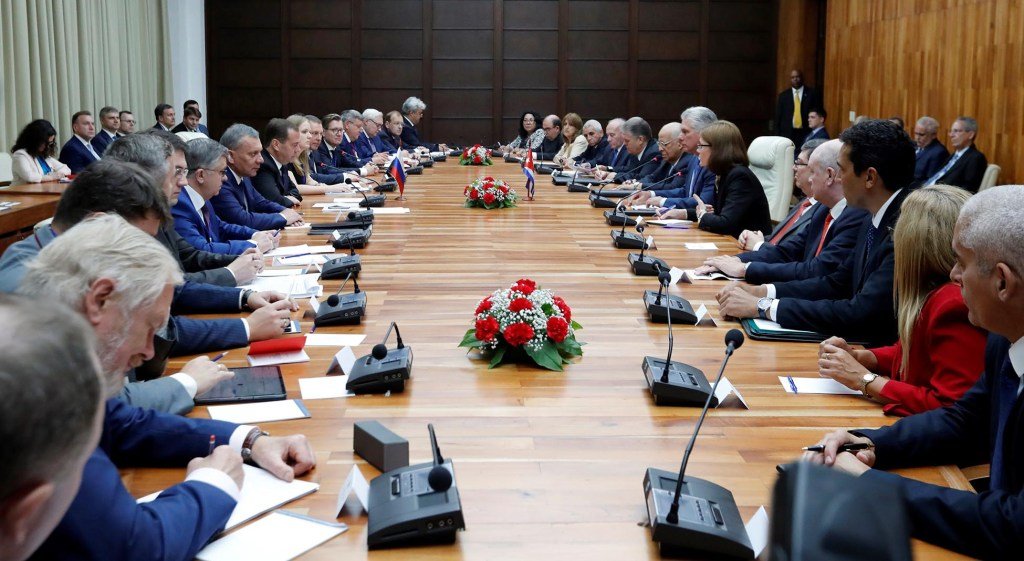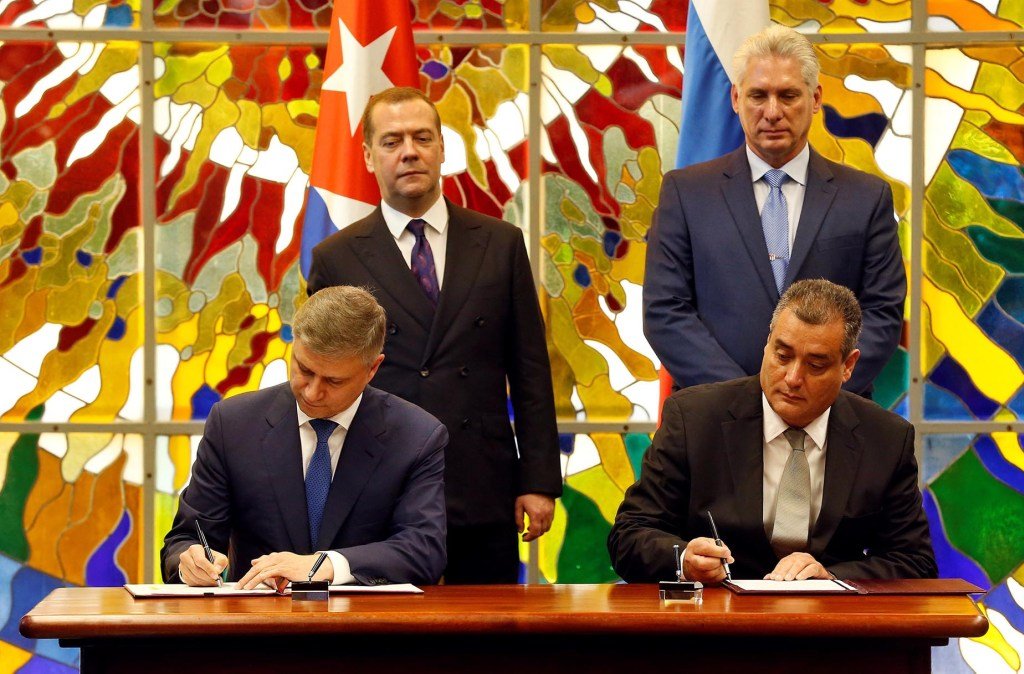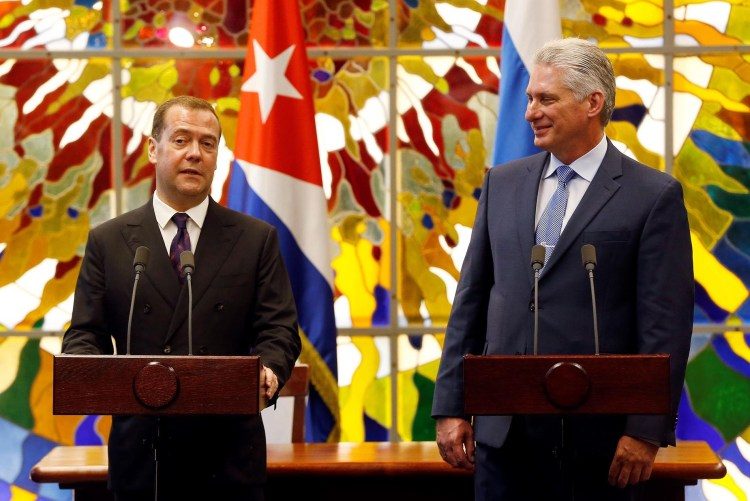Russian Prime Minister Dmitry Medvedev this Thursday regretted that the United States is taking a “dim view” of the cooperation of Russia and other nations with Cuba, which he described as a fundamental partner of his country in Latin America.
In Russia, Cuba has loyal friends and reliable partners, said Medvedev, who said the Russian business community is willing to support the cooperation efforts of the Russian state with the island, and announced the intention to strengthen humanitarian and cultural ties, according to reports by the Cuban News Agency (ACN).
The Russian prime minister’s visit, which began this Thursday, has strong geopolitical connotations―given the intensification of Washington’s embargo on Cuba and Venezuela―and domestically due to the energy crisis driven by Washington’s measures against the Caribbean nation.
“Not everyone agrees with this equitable dialogue. Over the last months, the United States has significantly intensified the economic blockade on Cuba,” said the visitor after a meeting with Cuban President Miguel Díaz-Canel on the first of his two days on the island.
“Its (Washington’s) desire to create a toxic atmosphere around cooperation with the island, scare away economic investors and create a form of energy blockade is clear,” he added.
Previously, Medvedev paid homage to Cuban hero José Martí in Revolution Square and was received at the Palace of the Revolution by Díaz-Canel, with whom he held a meeting in which they reviewed bilateral relations. Both “ratified the will to work for the continuous strengthening of these links, and discussed other international issues,” said the ACN.

In the official talks, the Russian prime minister was accompanied by Government Vice President Yury Borisov and the Deputy Foreign Minister Sergei Ryabkov, among other officials; while participating for Cuba, together with Díaz-Canel, were Vice President of the Council of Ministers Ricardo Cabrisas and ministers of Foreign Affairs Bruno Rodríguez, of Foreign Trade Rodrigo Malmierca, of Transportation Eduardo Rodríguez, and of Economy Alejandro Gil.
Following this, officials from the two countries signed eight agreements in strategic areas such as transportation, energy and infrastructures, in the presence of Medvedev and Díaz-Canel.
The documents include contracts and agreements for scientific-technical cooperation, the training of customs personnel and the fight against air traffic violations. Also for the maintenance of Russian aircraft in the Cuban fleet, the modernization and rehabilitation of the railroad infrastructure and financing to increase the assembly of motor vehicles, among others.
Moscow, which during the last decades of the Cold War was a firm partner of Cuba, is also a key ally of Venezuela, now one of the island’s main trading partners and its main oil supplier. Washington currently maintains economic sanctions against the three countries.
On the other hand, Díaz-Canel announced after the meeting that he will travel to Moscow at the end of the month to meet with President Vladimir Putin, as part of the follow-up of this visit and the strategic meetings held in September between officials in the Russian capital, where intergovernmental and business meetings and an exhibition of the island’s portfolio of opportunities took place.
Díaz-Canel thanked Russia for its support and condemned the “unfair and immoral” sanctions against Moscow imposed by the United States and some allies since 2014.

According to official Russian sources, bilateral trade will reach 500 million dollars this year.
Sectors such as energy, transportation or agriculture in which the Russians have a vast experience and which are experiencing difficulties on the island because of U.S. sanctions will be the most benefited by the rapprochement.
At the September meeting of officials both governments gave details about a “road map” agreement in January of this year for the Federation to participate in the modernization of the national energy system that includes from the maintenance of thermoelectric plants to secondary oil recovery.
In addition, First Deputy Chief of Staff of the Presidential Administration Sergei Prikhodko said this Thursday to the Sputnik press agency that, in addition to dozens of locomotives, Moscow had supplied the island with about 800 freight cars. The intention to participate in a long-term railroad rehabilitation project had previously been announced.
Prikhodko also stated hypothetically that Russia would even be willing to cooperate in the development of a nuclear energy industry on the island, but did not give details on whether there are open negotiations regarding this.
Medvedev’s visit will take place until Friday with the Prime Minister’s review of a secondary oil recovery station on the outskirts of Havana, the visit to the Capitol building―restored with the help of Russian technicians―and a ceremony in the University of Havana.
AP / OnCuba










